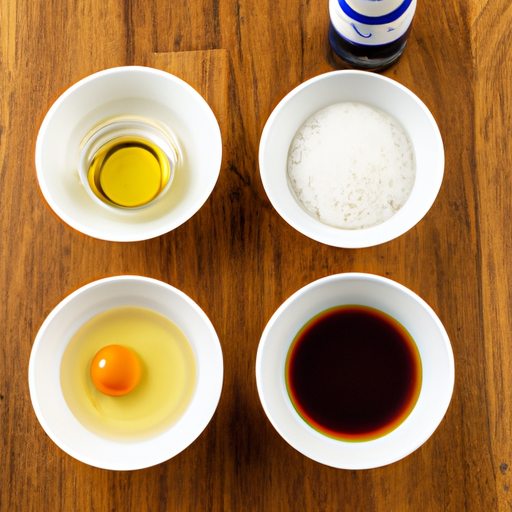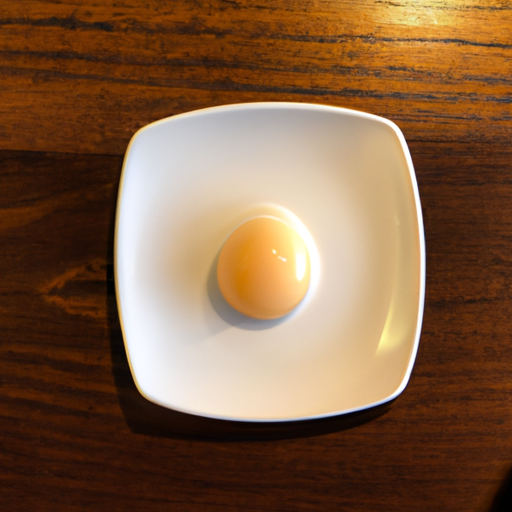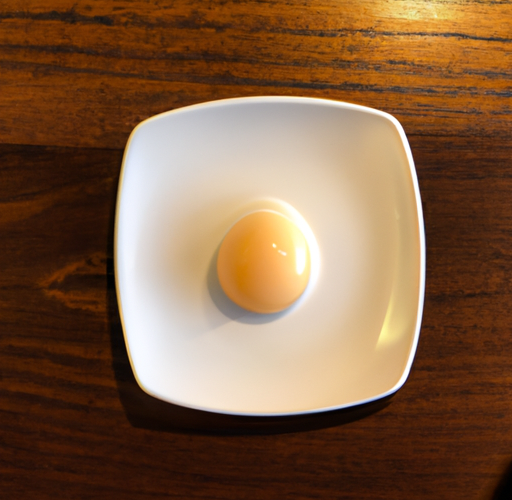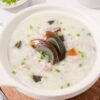Welcome to our omelette recipes website! Today, we are excited to share with you a delicious and nutritious Japanese-style egg omelette that will definitely satisfy your taste buds. Soft and creamy on the inside yet crispy on the outside, this omelette is packed with flavor and packed with protein. Whether you’re looking for a quick breakfast, a satisfying lunch, or a light dinner option, this Japanese egg omelette is definitely worth trying out. So let’s get cooking, shall we? We’ve made this japanese egg recipe easy to follow 👨🍳.

Ingredients
- 4 large eggs
- 1 tbsp. sugar
- 1 tbsp. mirin
- 1 tbsp. soy sauce
- 1 tbsp. vegetable oil
Instructions
- Crack the eggs into a bowl and add the sugar, mirin, and soy sauce. Whisk together until well combined.
- Heat a non-stick frying pan over medium heat and add the vegetable oil. Use a paper towel to spread the oil evenly over the surface of the pan.
- Pour a small amount of the egg mixture into the pan and tilt the pan to spread it evenly. When the egg is set but still slightly runny on top, use chopsticks or a spatula to roll it up from one end of the pan to the other.
- Move the rolled omelette to one end of the pan and add a little more of the egg mixture to the empty space. Tilt the pan to spread the egg, and when it starts to set, roll it up around the first omelette roll.
- Repeat step 4 until all of the egg mixture is used up and you have a long, thick omelette roll.
- Remove the omelette from the pan and let it cool for a few minutes. Slice it into rounds and serve.

How long does japanese egg last in the fridge?
Cooked Japanese eggs can be stored in the refrigerator for up to four days, as long as they are stored properly in an airtight container or a plastic wrap. It is important to refrigerate the eggs within two hours of cooking them to prevent bacterial growth. It is also recommended to consume the eggs within the first few days to guarantee their freshness and safety for consumption. If you are unsure if your eggs are still safe to eat, it is best to err on the side of caution and discard them.
Low calorie japanese egg recipe substitutions
To make this Japanese Tamagoyaki recipe lower in calories, you could make a few substitutions. First, you could use egg whites in place of some or all of the whole eggs to reduce the overall calorie and fat content. Additionally, you could reduce the amount of sugar used or use a sugar substitute such as stevia. Instead of using vegetable oil to cook the omelette, you could use a non-stick cooking spray or a small amount of olive oil. Finally, choosing a low-sodium soy sauce or reducing the amount used could also help to lower the calorie and sodium content of the dish.
What to serve with a japanese egg?
There are a lot of dishes that can be served with Japanese egg to create a balanced and flavorful meal. One classic option is to serve the egg over a bed of steamed rice with a side of miso soup and pickled vegetables. Alternatively, you could incorporate the egg into a stir-fry with vegetables like bell peppers, snap peas, and shiitake mushrooms. For a lighter option, you could serve the egg on top of a simple salad with mixed greens, cherry tomatoes, and a drizzle of soy sauce and sesame oil. No matter what you choose, the rich, umami flavor of the Japanese egg is sure to elevate any dish!
Whats the best sauce for a japanese egg?
The best sauce for Japanese egg, known as tamagoyaki, is a combination of soy sauce, mirin, and dashi. This mixture creates a savory and slightly sweet flavor that complements the taste of the egg, without overpowering it. Some variations may include additional ingredients like sugar, sake, and rice vinegar. However, this classic sauce helps to enhance the umami flavor profile of the egg, while also bringing out its natural sweetness. Overall, the combination of soy sauce, mirin, and dashi is a simple and delicious way to enjoy tamagoyaki.
Japanese egg health benefits
Japanese eggs are generally considered to be nutritious and healthy due to their high protein content, essential vitamins, and minerals. They are also known to be low in calories and fat, making them an excellent food option for weight watchers. The egg yolk contains essential fatty acids, vitamins A, D, and E, amino acids, and cholesterol, which can provide good nutritional support for skin, hair, and eye health. The egg white contains a significant amount of protein and is often used by athletes and bodybuilders for building muscles, repairing and recovering from workout sessions. However, if you are looking for an even healthier recipe, you might consider a vegetable stir-fry with tofu, rich in protein and low in fat.
Post | Title | Ratings | Link |
 | Turkey and Cheese Omelette | ||
 | Goat Cheese and Tomato Omelette | ||
 | Tomato and Mozzarella Omelette |
















